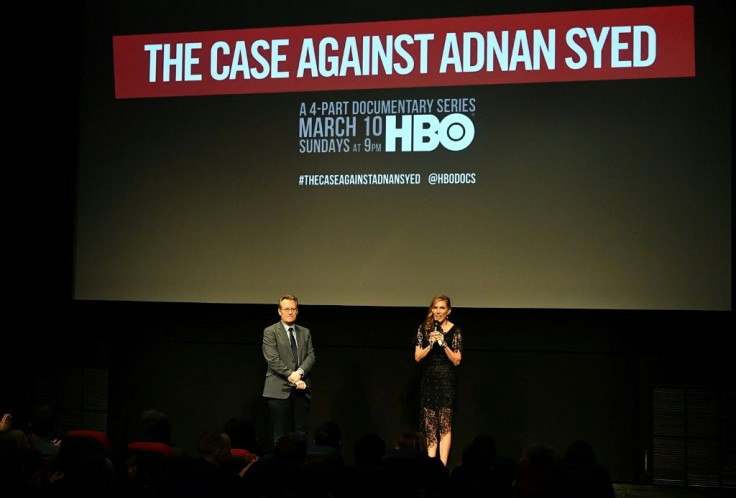Supreme Court Rejects New Trial For 'Serial' Podcast Inmate

The US Supreme Court on Monday turned down a request for a new trial for a man convicted of his ex-girlfriend's 1999 murder -- a case that received worldwide attention thanks to the hit podcast "Serial."
The highest US court declined, without comment, to take up the case of Adnan Syed, who was convicted in 2000 of the murder of 18-year-old Hae Min Lee.
The decision effectively leaves in place a ruling by the Maryland Court of Appeals, which reinstated Syed's conviction after a lower court had ordered a new trial.
Syed, 39, is serving a life sentence for the murder of Lee, whose body was found buried in February 1999 in a shallow grave in the woods of Baltimore, Maryland. She had been strangled.
Syed has steadfastly declared his innocence and the case earned new attention when it was taken up by "Serial," a weekly podcast that saw a US journalist revisit the case and cast doubt on his guilt.
Syed's case has also been the subject of a four-part documentary on the HBO channel called "The Case Against Adnan Syed."
Maryland's Court of Special Appeals ordered a retrial of the case on the grounds that Syed's lawyer had been ineffective and had failed to contact a potential alibi witness who claimed she saw him in a public library at the time of the murder.
The Maryland Court of Appeals threw out that argument, however, and the case went to the Supreme Court for consideration.
The "Serial" podcast -- a mix of investigative journalism, first-person narrative and dramatic storytelling -- focused its first season on Syed's story in 12 nail-biting episodes.
Both Syed and Lee were high school honor students and children from immigrant families -- he Pakistani, she South Korean -- who had concealed their relationship from their conservative parents.
Prosecutors said during the trial that Syed was a "scorned lover" who felt humiliated after Lee broke up with him.
Syed's attorney, C. Justin Brown, said he was "deeply disappointed" that the Supreme Court declined to take up the case.
"But by no means is this the end," Brown told The Baltimore Sun newspaper. He said legal options remain but did not say what they were.
© Copyright AFP {{Year}}. All rights reserved.





















